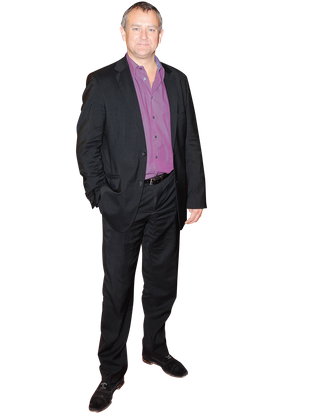
Downton Abbey, the soapy British period drama created by Gosford Park’s Julian Fellowes, ended last season on the eve of World War I. Its second season begins this Sunday on PBS, with the entire estate, both upstairs and downstairs, mobilized for war. We spoke with Hugh Bonneville, who plays Downton’s patriarch, Robert Crawley, Earl of Grantham, about the show’s appeal, its historical accuracy, and his character’s doting dogs. He also gave us a firm talking-to for watching season two on the Internet.
Would you want to have a butler in real life?
No, I think it’s pretty demeaning. Actually, no, I don’t think it’s demeaning to have a butler because a lot of people take great pride in service, as is one of the points of the show. I think because I’ve been brought up in an environment where you do make do for yourself I’d find it very strange. I would like to have a driver. I’d be happy with a chauffeur.
If you had to put yourself back in that time and place, where do you think you would fall in the scheme of it?
I think I’d probably be head gardener. I might rise to head footman. Head footman is pretty good, actually. You have a degree of respect from others around you, but none of the massive responsibility.
Do you think that it’s realistic to show servants so accepting of their roles in this show?
I think it’s very easy to put our modern credentials on an era in which, let’s face it, unless you had money and position in society, there was very little opportunity. And to be in service, and to do it well, was a huge feather in your cap. There’s no question that for 99 percent of the population, life was shit in 1912 or 1913. But we’re creating a fictional world where it so happens that the Earl is a generous-minded figure. Yes, it is a feudal system, but he realizes that if one cog in the machine breaks down, the whole system’s fucked, so it’s in his interest to keep the cogs turning. This is a world before civil welfare. A world before any national health system like we have in the U.K. So I think it’s too easy to say they’re being treated appallingly. Their prospects would probably be a little bit bleaker if they were working somewhere other than Downton. So, yes, it’s a fiction, but the bottom line is that it’s a fictional world. We’re not saying this is social history.
Although it does seem like people are very concerned with the historical detail.
There was a letter in the newspapers only yesterday about the season finale, that you haven’t seen yet, I don’t think.
I’ve actually already watched it on the Internet.
I wish you hadn’t told me you had watched it illegally, that’s really pissing me off. Shame on you. Be ashamed.
… You were saying about a letter in the newspaper?
There was a letter yesterday where someone says, “I hear that on the shooting party that takes place someone is seen wearing gaiters — they would not have worn gaiters.” My favorite one was in season one, when Thomas the footman, after Cora’s had the miscarriage, says, “I don’t see what all the fuss is about, the baby would only have been the size of a hamster.” And someone wrote in saying the footman used the wrong word because the Syrian hamster was not introduced in northern Europe until 1922; the actor should have said “small rabbit.” That’s just ludicrous. But I suppose if we’d been a flop, no one would write in.
There’s a dog that’s always following you around on the show.
In season one it’s called Pharaoh, and in season two it’s called Isis. It’s a new dog. Pharaoh dies, but off-screen; it’s not dealt with. Julian sort of tried to fob it off as the same dog and I said, “Look, there’s a big difference.” The first one, Roly, who played Pharaoh, his main focus was the next treat, a piece of chipolata. The next dog, Isis, played by Ellie, her main interest is wagging her tail a lot, usually near valuable vases, and skipping around really not listening to anything anyone says. And chipolata. So she has a very vibrant personality and zero sense of self-control.
What do you think is so appealing about the show?
I wish I knew the answer to that. If I knew the answer, I’d be a millionaire. I think partly it’s that people enjoy watching period drama. There’s a sense of escape to a world that seems to be a better world, a fairer world, that we would like to live in. But I think what’s different about this is it’s not an adaptation of a Jane Austen or a Dickens or a George Elliott. Because no one knows what happens next, because it’s actually been written freshly. So it has the best elements of soap, and if you get bored of one character there’s always another one coming along in a minute.

